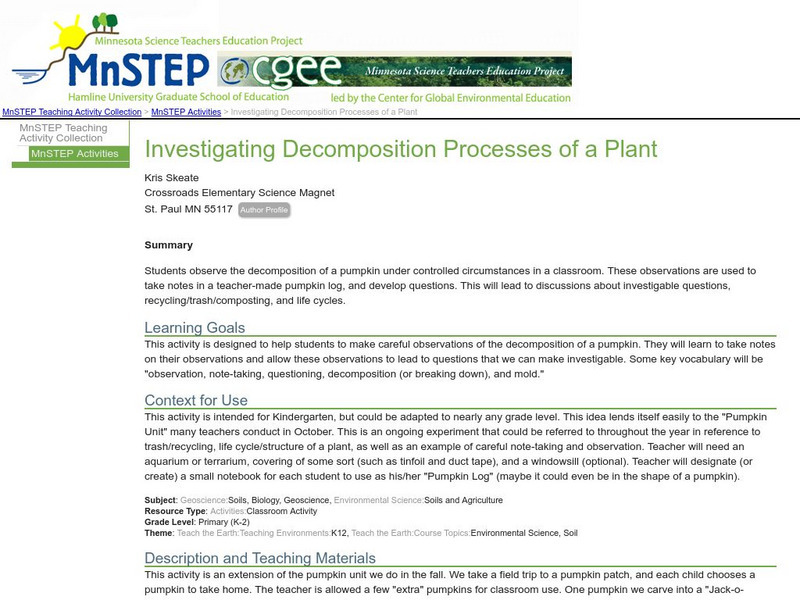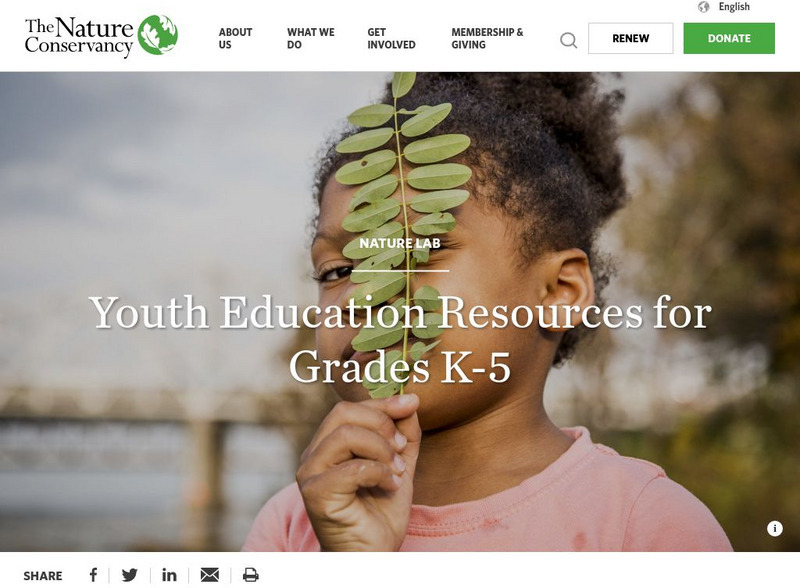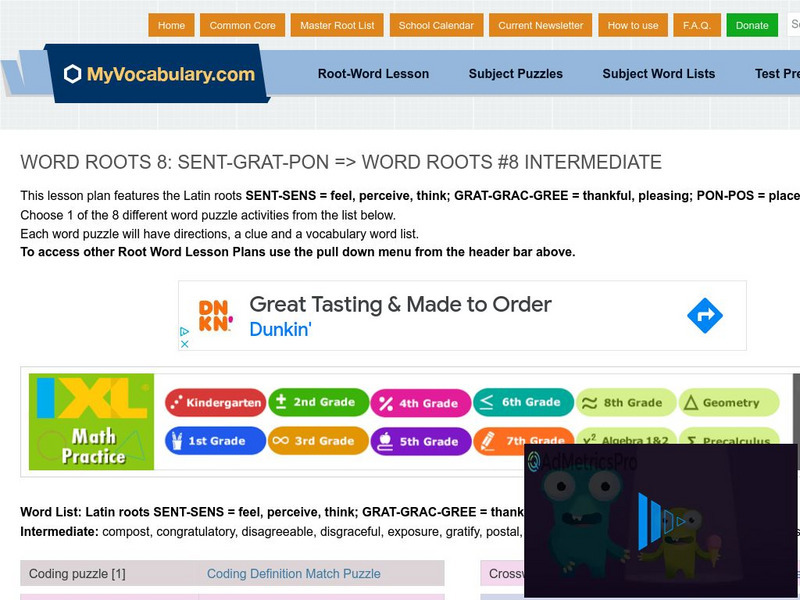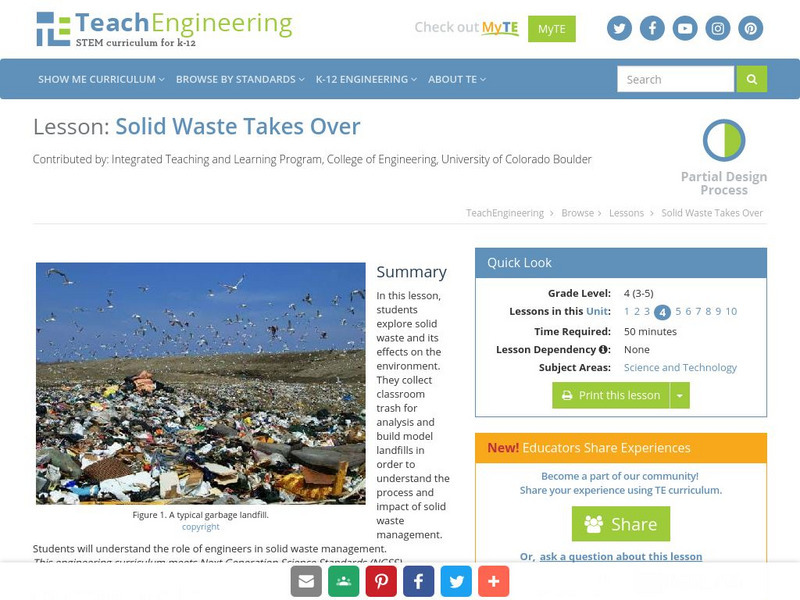Curated OER
Grow Your Own
Students study the growth and care of plants. They take tour of their school site and plant seeds to observe their growth. Afterward, they answer questions about the origin and value of their plants.
Curated OER
It’s Your Trash!
Students identify the different sections of a landfill. In this ecology lesson plan, students brainstorm ways that they can help in proper trash disposal. They write a reflection journal about their thoughts on the subject.
TeachEngineering
Teach Engineering: 3 Rc (Reduce, Reuse, Recycle and Compost)
In this instructional activity, students expand their understanding of solid waste management to include the idea of 3RC (reduce, reuse, recycle and compost). They will look at the effects of packaging decisions (reducing) and learn...
Science Education Resource Center at Carleton College
Serc: Mn Step: Worm Farming and Composting
Students create a red worm composter. As the composter develops, they will make and record observations about its health and the growth of its red worm population.
TeachEngineering
Teach Engineering: Biorecycling: Using Nature to Make Resources From Waste
By studying key processes in the carbon cycle, such as photosynthesis, composting, and anaerobic digestion, young scholars learn how nature and engineers biorecycle carbon.
TeachEngineering
Teach Engineering: What Will Biodegrade?
Learners investigate what types of materials biodegrade in the soil, and learn what happens to their trash after they throw it away. The concepts of landfills and compost piles will be explained, and the students will have an opportunity...
Better Planet Productions
Earth Care: Worm Wranglers [Pdf]
A lesson in worm composting for Grade Three.
Science Education Resource Center at Carleton College
Serc: Investigating Decomposition Processes of a Plant
Students observe the decomposition of a pumpkin under controlled circumstances in a classroom. This can be used to lead discussions on recycling, trash, composting, or life cycles.
Nature Conservancy
The Nature Conservancy: Gardens Activity Guide: Soil
For this lesson students conduct a soil analysis to understand soil types and explore the relationship between the garden and healthy, fertile soil. Soil is a natural resource that is crucial to life on Earth and when managed properly,...
Science Education Resource Center at Carleton College
Serc: Investigating Soil Which Soil Help Plants Grow?
In this guided inquiry lab, students will investigate what type of soil let plants/grasses grow the best. Students will answer the question by conducting an experiment using five different soils found in our area, school soil, potting...
Vocabulary University
My vocabulary.com: Word Roots Lesson 8:sent Grat Pon:word Roots #8 Intermediate
This lesson plan features the Latin roots SENT-SENS = feel, perceive, think; GRAT-GRAC-GREE = thankful, pleasing; PON-POS = place, put Choose 1 of the 8 different word puzzle activities from the list below. Each word puzzle will have...
Texas Commission on Environmental Quality
Tceq: Lesson Plans & Resources for Teaching Environmental Sciences [Pdf]
A large collection of lesson plans on environmental topics. The lessons are broken up into the broad categories of air, water, and waste, and look at issues around quality, pollution, conservation, and recycling. There are activities for...
TeachEngineering
Teach Engineering: Solid Waste Takes Over
In this lesson, learners explore solid waste and its effects on the environment. They will collect classroom trash for analysis and build model landfills in order to understand the process and impact of solid waste management. Students...
Other popular searches
- Worm Composting
- Composting Third Grade
- Trash & Recycling Composting
- Worm Compost
- Importance of Composting
- Compost Piles
- Compost Bins
- 2 Liter Bottle Composting
- Composting Temperature
- Compost Column
- Science of Composting
- Classroom Composting






![Earth Care: Worm Wranglers [Pdf] Lesson Plan Earth Care: Worm Wranglers [Pdf] Lesson Plan](https://d15y2dacu3jp90.cloudfront.net/images/attachment_defaults/resource/large/FPO-knovation.png)




